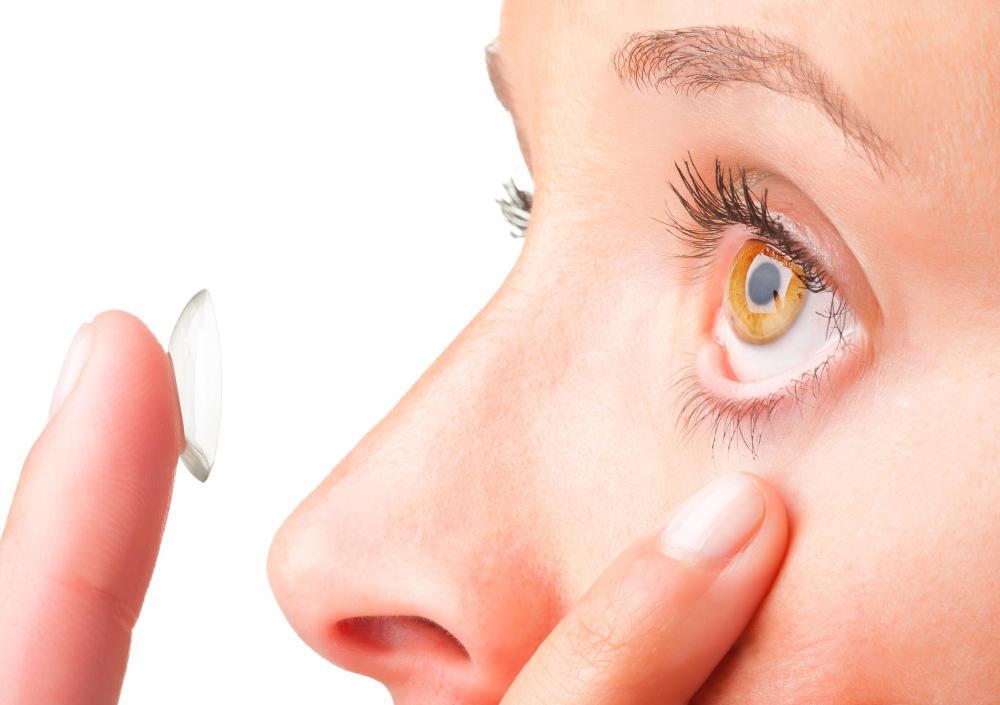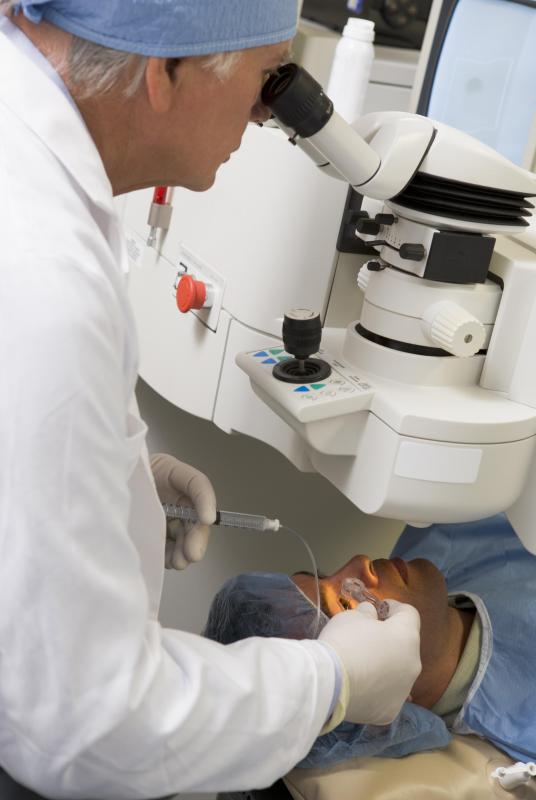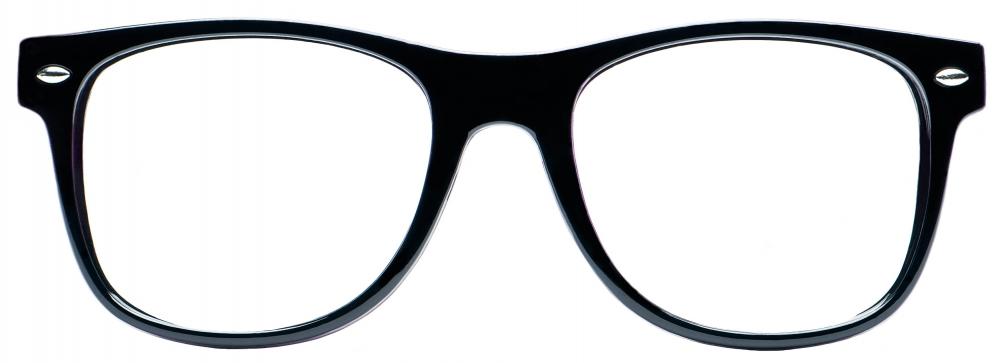At TheHealthBoard, we're committed to delivering accurate, trustworthy information. Our expert-authored content is rigorously fact-checked and sourced from credible authorities. Discover how we uphold the highest standards in providing you with reliable knowledge.
What is Myopia?
Myopia is a vision defect commonly known as nearsightedness. Those with this condition can see clearly up to a certain distance, then objects begin to appear fuzzy or out of focus. Distant road signs or chalkboards are often too blurry to read, which can lead to serious problems if their vision is left uncorrected. Most cases of myopia are diagnosed through vision tests administered during childhood years. Even toddlers have been known to demonstrate early symptoms.
If one thinks of the eyeball as a camera, then the retina would be the unexposed film positioned in the back. In a normal eye, light enters through the iris, bringing with it a reflected image. The cornea and lens focus this image squarely on the surface of the retina, albeit upside-down. The optic nerve sends this focused image to the visual area of the brain, where it is translated into a recognizable mental picture.

For people with myopia, however, this process does not work precisely. Because a myopic person's eyeball is slightly longer from front to back, the cornea and lens focus the image in front of the retina. This is not especially noticeable at short distances, but distant images are distorted before they hit the retina.The visual area of the brain can only process what it receives, so the unfocused images cannot be sharpened. The result is blurriness and a lack of visual detail.

Treatment for this condition may include eye strengthening exercises, glasses, contact lenses or laser correction. Some practitioners of homeopathic or alternative treatments believe that myopia is not inherited, but rather a result of overwork and environmental conditions. They recommend a regimen of eye exercises and non-corrective lenses containing a number of pinholes to control the incoming light. Looking through a pinhole can indeed sharpen the focus of many myopic people, although the effect is limited and potentially dangerous.

Most eye doctors prefer the use of prescription lenses, whether it is in the form of eyeglasses or contact lenses. Since myopia is the result of a focus problem, the solution is to change the focal point in the eyeball itself. Refractive lenses or contacts work by allowing the incoming images to fall directly on the retina. There are also contact lenses available which actually reshape the cornea overnight, allowing wearers to see normally throughout the day without aid.

In recent years, laser-based corrective surgery has become a popular option for nearsighted people. A trained eye doctor will anesthetize the patient's eyes and use a laser to remove excess corneal material. The flattened eyeball should be shortened enough to allow normal focus to occur. Long term effects of this type of surgery are still unknown, but most people who undergo the procedure report improved vision without the need for corrective lenses.
AS FEATURED ON:
AS FEATURED ON:
















Discussion Comments
I also had laser surgery to correct my vision but have been unhappy with my results. At first the surgery appeared to be a success and I was able to do anything I wanted without relying on glasses or contacts. After about a year though, my vision started to gradually get worse. My first clue was that I was having trouble reading the road signs.
It has been about 5 years since my surgery, and my eyes are not all the way back to where they were before I had the laser surgery, but they are almost to that point. Every year when I get my eyes checked, they have regressed a little bit more.
When this first started to happen, my doctor said he could do an enhancement, but I declined. I figured I only have one pair of eyes, and I didn't want to take any more chances. It would have been great if the laser surgery had worked, but unfortunately for me it wasn't a good investment.
I had laser surgery about 8 years ago to correct my nearsightedness. After the surgery I had 20/20 vision in both eyes and could see without any corrective lenses.
It was wonderful to be able to pass my drivers license test without needing any correction. I am also very active outdoors and especially like being able to participate without any contacts or glasses. If this is something that is in your budget, it is something that I would really recommend.
I have been treated for myopia since I was about 12 years old. I was complaining of headaches and when they checked my eyes they discovered I needed glasses. When I became a teenager I began wearing contact lenses.
I started out wearing the hard contacts and when the soft lenses became popular I began wearing them. Soft contact lenses are inexpensive and comfortable but I feel like I have never been able to see as clearly with them as I did wearing hard contacts.
Until reading this article I never knew you could wear special contact lenses at night that reshaped your cornea. I wonder if this is something that is done very often? I wouldn't mind wearing something like this at night if I didn't have to rely on glasses or contacts during the day.
@anon287569-- I find it encouraging to know you were able to improve your vision without going with higher prescription lenses. I have often wondered if programs like this really work. I am a bit of a skeptic when it comes to things like this and wonder if they are really worth the money.
From time to time I see something like this advertised on TV or in a magazine, but have really never checked it out. It would be wonderful if I could see clearly without wearing my glasses.
One of the best things about having bad vision is how it feels to get new glasses when your prescription has changed. It's just being brought up to normal, but it feels like you've suddenly got super vision. You can see so many things you never saw before.
I remember when I was a kid and they finally diagnosed me with bad vision I was astonished by the transformation of the world.
@anon14942 - Yes you certainly can. My mother has both and needs special glasses in order to compensate. They can't make lenses that will deal with both conditions simultaneously, but they can make lenses that have half of one type of lens and half of the other. So, you look down in order to read and do close work and look up in order to see a far distance.
Unfortunately, they are much more expensive than normal myopia glasses, so a lot of people opt to get two pairs (one for each condition) instead, since that's cheaper.
I have myopia. My prescription went down to -2.50 from -4.00 in four months.
I found a rehab clinic in Austria (Frauenfeld Clinic). Unlike the other 20 years of my life, where I was being sold glasses and ever increasing prescriptions, these guys actually worked with me to eliminate the cause and fix the damage.
it is possible to use convex or concave lenses or a combination as a remedy for myopia?
after being diagnosed with lattice degeneration and
retinal holes and myopia and vision of 20/50 and 20/80. What does it all mean?
how do measures like 20 - 400 (i.e. nearsighted see at 20 feet what normal vision sees at 400 feet) and diopters relate?
Can a person have both short sight and long sight simultaneously?
this is the most interesting article i have ever read. it describes clearly the causes of myopia, solutions and how to prevent it.
Post your comments